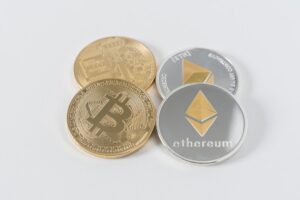Top 5 Resources to Help You Learn to Forex Trade
Forex trading, also known as foreign exchange trading, has gained significant popularity in recent years. This decentralized global market allows individuals to trade currencies and potentially earn profits by speculating on currency pairs’ price movements. However, forex trading can be complex and challenging, especially for beginners. To navigate this market successfully, it is crucial to educate yourself and acquire the necessary skills and knowledge. Fortunately, numerous resources are available to help you learn forex trading. In this article, we will explore the top five resources that can assist you in your journey to become a forex trader.
1. Forex Trading Courses
Taking a forex trading course is an excellent way to start your forex education. These courses are specifically designed to provide a comprehensive understanding of forex trading, starting from the basics and gradually progressing to more advanced topics. Many reputable online platforms offer forex trading courses, allowing you to learn at your own pace and convenience. These courses often include video tutorials, interactive quizzes, and practical exercises to enhance your learning experience. Some courses even provide live trading sessions with experienced traders, enabling you to observe their strategies and gain valuable insights. Investing in a forex trading course can be a worthwhile investment, as it equips you with the fundamental knowledge and skills necessary to succeed in the forex market.
2. Forex Trading Books
Books are an invaluable resource for learning forex trading. Many experienced traders have shared their insights and strategies in written form, which can be immensely beneficial for beginners. Some popular forex trading books include “Trading in the Zone” by Mark Douglas, “Japanese Candlestick Charting Techniques” by Steve Nison, and “Forex For Beginners” by Anna Coulling. These books cover a wide range of topics, from technical analysis and chart patterns to risk management and psychology. By reading these books, you can gain a deeper understanding of the forex market and learn from the experiences of successful traders.
3. Forex Trading Forums
Engaging with a forex trading community through online forums can be an excellent way to learn from experienced traders. Forex trading forums provide a platform for traders of all skill levels to share their ideas, strategies, and experiences. By participating in these forums, you can ask questions, seek advice, and receive feedback from more seasoned traders. Additionally, reading through forum threads allows you to gain insights into different trading approaches and learn from real-life trading scenarios. Some popular forex trading forums include Forex Factory, BabyPips, and DailyFX. However, it is essential to approach information from forums with caution and critically evaluate the advice provided, as not all forum members may be experts.
4. Demo Trading Accounts
Practice makes perfect, and this holds true for forex trading as well. Opening a demo trading account is a fantastic way to gain hands-on experience without risking real money. Demo accounts are provided by most forex brokers and simulate real trading conditions using virtual funds. By using a demo account, you can familiarize yourself with the trading platform, test different strategies, and observe how the market behaves. This practical experience is crucial for building confidence and developing your own trading style. It is important to treat your demo trading account seriously and simulate real trading conditions to make the experience as realistic as possible.
5. Economic Calendars and News Websites
Staying up to date with economic news and events is essential for forex traders. Economic indicators, such as GDP reports, interest rate decisions, and employment data, can significantly impact currency prices. Economic calendars and news websites provide a comprehensive overview of upcoming economic events and their potential impact on the market. By monitoring these calendars regularly, you can plan your trades accordingly and avoid unexpected market volatility. Some popular economic calendars and news websites include Forex Factory, Investing.com, and Bloomberg. Additionally, many brokers offer their own research and analysis tools, which can be useful for staying informed about market developments.
In conclusion, learning to trade forex requires dedication, time, and a willingness to continuously educate yourself. The resources mentioned above, including forex trading courses, books, forums, demo trading accounts, and economic calendars, can greatly assist you in your journey to becoming a successful forex trader. However, it is important to approach these resources with an open mind, stay disciplined, and practice good risk management. Forex trading is a skill that takes time to develop, but with the right resources and commitment, you can unlock the potential of this exciting market.





